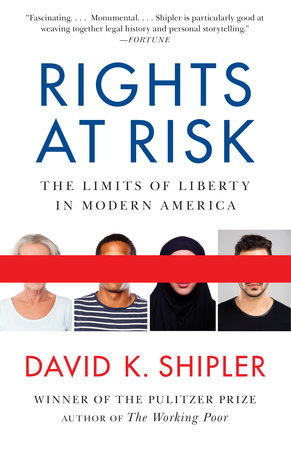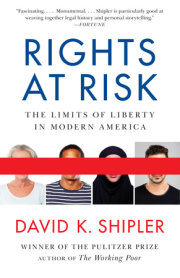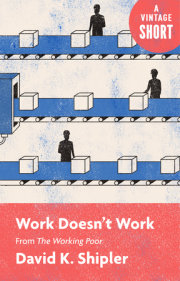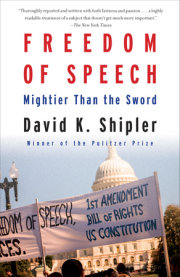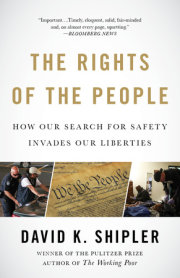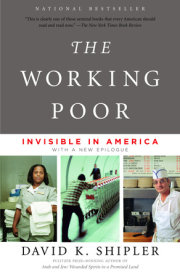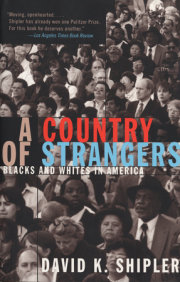Introduction
The Insolence of Office
Society in every state is a blessing, but Government, even in its best state, is but a necessary evil; in its worst state, an intolerable one.
—Thomas Paine, Common Sense, 1776
On July 11, 1787, as the Constitutional Convention debated how to determine apportionment in the House of Representatives, James Madison spiced up a dense discussion with several pointed warnings about governmental authority. The question was whether to trust the House itself or to impose the constitutional requirement of an impartial census every decade. “All men having power ought to be distrusted to a certain degree,” Madison declared. He spoke of “the political depravity of men, and the necessity of checking one vice and interest by opposing to them another vice & interest.”
In the end, the census was chosen to deny House members control over the composition of their own body. It was one of many precautions that have come down to us in the Constitution’s separation of powers and in the Bill of Rights, whose provisions were designed to restrain government from trampling on people’s liberties.
Yet people remain vulnerable. They do not play on a level field against a potent executive branch. Their constitutional rights are routinely overwhelmed, largely out of sight In criminal courts, where few citizens go to watch; in police interrogation rooms, where the public is not allowed; in the closed offices of prosecutors and immigration bureaucrats; and in schools whose authorities show the next generations of Americans that elements of the Bill of Rights can be suspended, evaded, or ignored. This does not happen everywhere all the time, but often enough to damage the constitutional culture. On their way to jail, to deportation from the country, or to expulsion from school, those who confront the muscle of the state frequently see their rights bruised, their liberties wounded. This book is about some of those people. Therefore, it is about all of us.
When compared with other high- income countries, the United States does poorly in limiting governmental powers—only ninth in a field of eleven selected by the World Justice Project for its Rule of Law Index—behind Sweden, the Netherlands, Australia, Austria, Japan, Canada, Spain, and France. Among seven countries of Western Europe and North America, the United States is ranked last.
This seems surprising, since the framers were intensely wary as they created a federal government. With the excesses of British colonialism fresh in their minds, they hobbled the new regime with checks and balances among three branches and circumscribed it with the venerable right of habeas corpus, which allows anyone arrested the right to summon his jailer to court to justify the imprisonment. That was enough to forestall arbitrary rule, the convention delegates believed, and they wrote the Constitution on the assumption that government would have no power that was not expressly given by the people.
That was not enough for the states, which demanded more specific guarantees as the price of ratification. Protections were then provided in the first ten amendments, the Bill of Rights, which spelled out liberties that government could not invade. These were not purely American inventions. The framers were reviving traditional principles in English law that they had seen abandoned by the British crown, so they drew from the Magna Carta of 1215, the 1689 English Bill of Rights, and the unwritten body of rules and precepts known as English common law.
The end result displayed three salient characteristics. First, it was concise and broadly worded, avoiding the long-winded specifics typical of other constitutions. When there are intricate details, a right not listed may be taken as a right denied. Instead, the framers found strength in brevity, which keeps the Constitution alive by allowing each generation room to reconsider limits on governmental behavior, to reinterpret the meanings of “unreasonable searches,” “cruel and unusual punishments,” “probable cause,” and other key concepts. As Chief Justice John Marshall declared in 1819, the Constitution was “intended to endure for ages to come, and consequently to be adapted to the various crises of human affairs.”
Second, unlike the constitutions of many other nations, ours does not bestow rights but recognizes rights that we already possess. Any doubt on this point is snuffed out by the Ninth Amendment, which states explicitly that the enumeration of rights does not “deny or disparage others retained by the people.” Key sections dictate what government may not do: “Congress shall make no law,” begins the First Amendment. “The right of the people . . . shall not be violated,” states the Fourth. “No person shall be held,” begins the Fifth, continuing in a string of negatives. The negatives, the proscriptions against government, are the most potent protections.
Third, all the obstacles to overweening authority are built into the brick and mortar of the Constitution so that individual liberty does not depend on the goodwill of particular officials. Madison and others, understanding the universality of human foibles, made sure that protections were lodged deeply within the system itself. They erected interlocking barriers to autocracy, one right relying on the others so that none thrives without reinforcement by the rest. As a result, critical provisions of the Bill of Rights, stitched together to get the Constitution ratified, function more coherently than their fractious political origins might have predicted. Government cannot be held accountable without the guarantee of freedom of speech and the press in the First Amendment. Justice cannot be served unless upheld by the Fifth Amendment’s requirement that no one “be deprived of life, liberty, or property, without due process of law,” which cannot be effected without the ingredients of that “due process” that are specified in the Sixth Amendment: the rights to counsel, to public and speedy trial by jury, to confront and summon witnesses.
Copyright © 2012 by David K. Shipler Living Trust. All rights reserved. No part of this excerpt may be reproduced or reprinted without permission in writing from the publisher.

